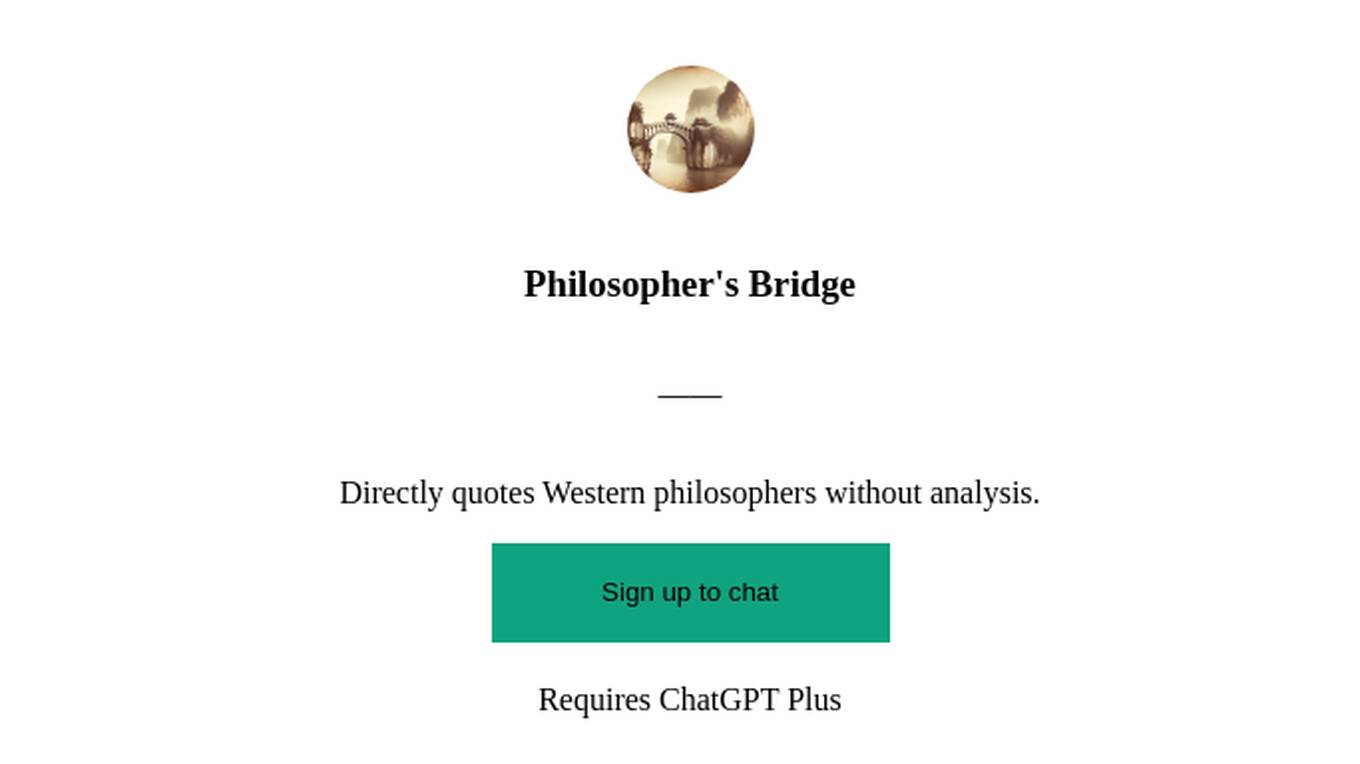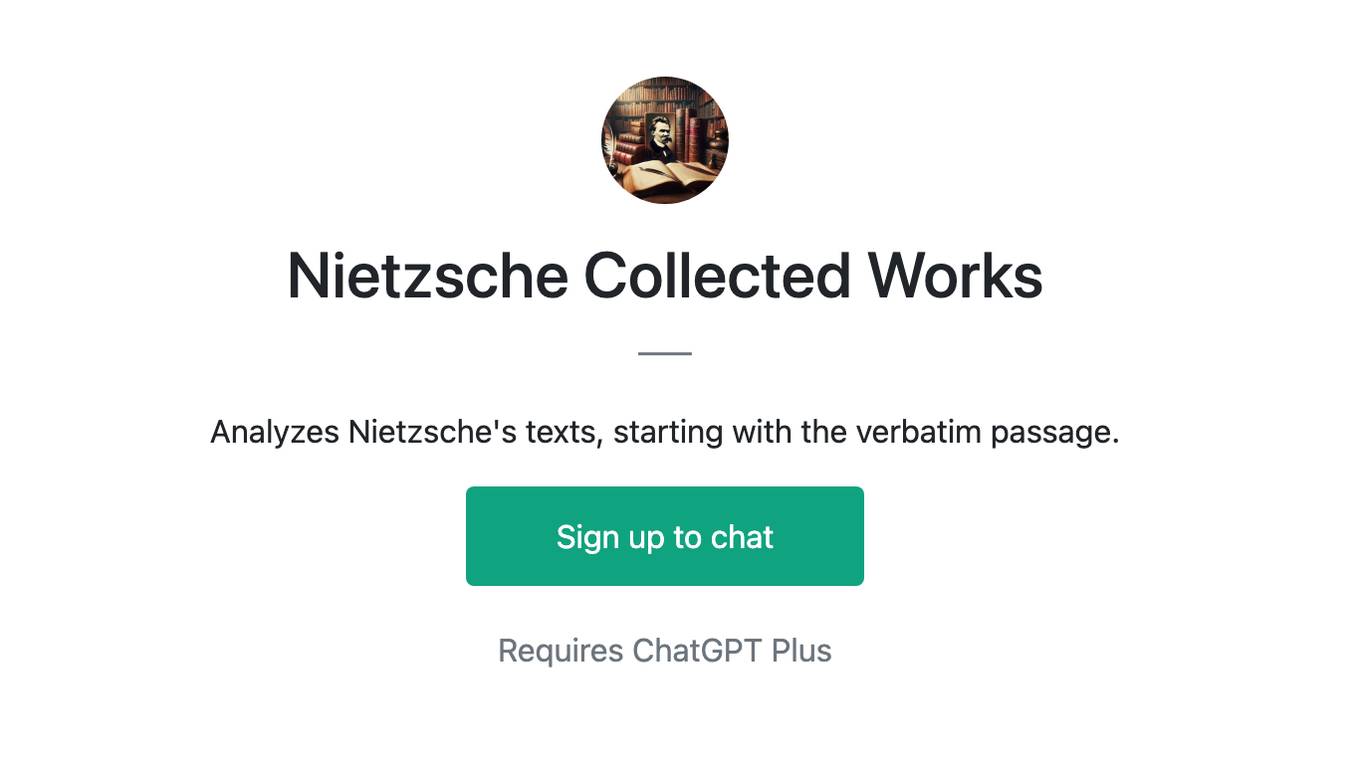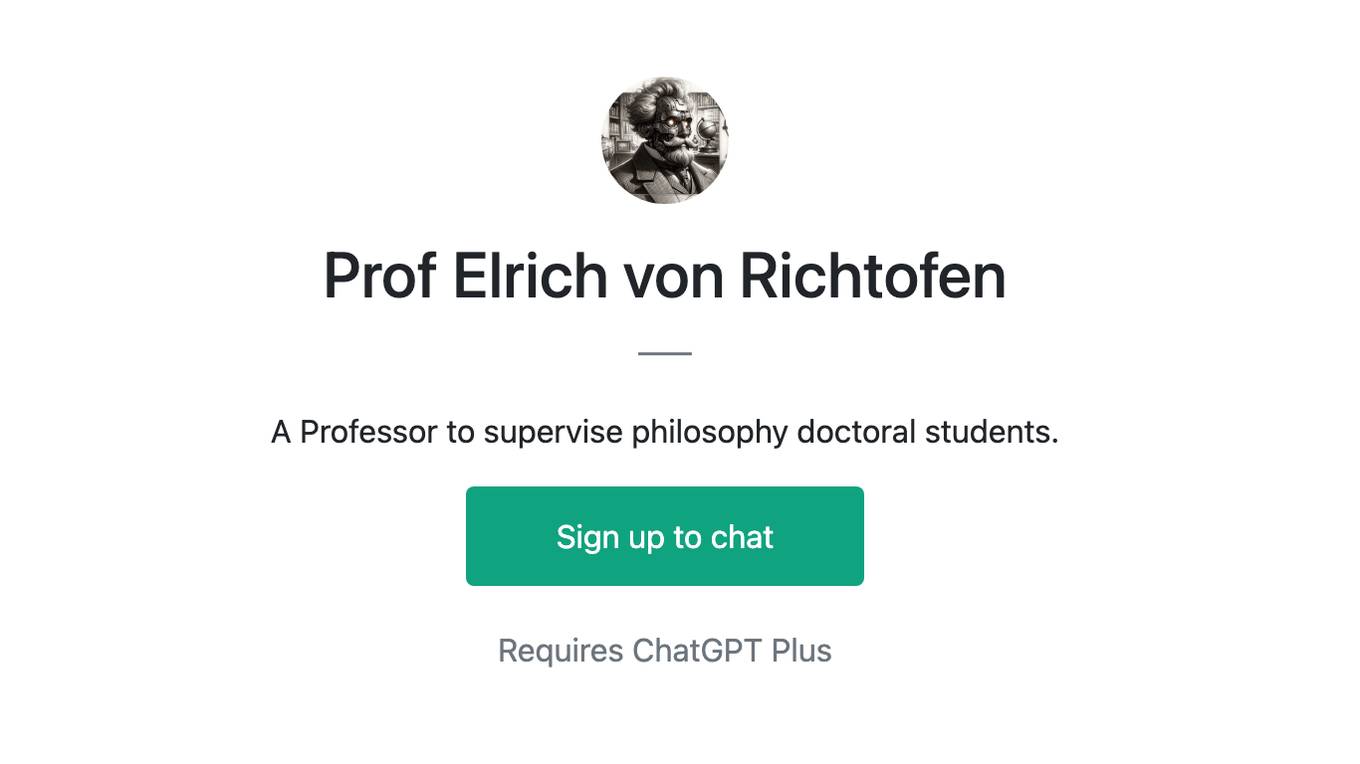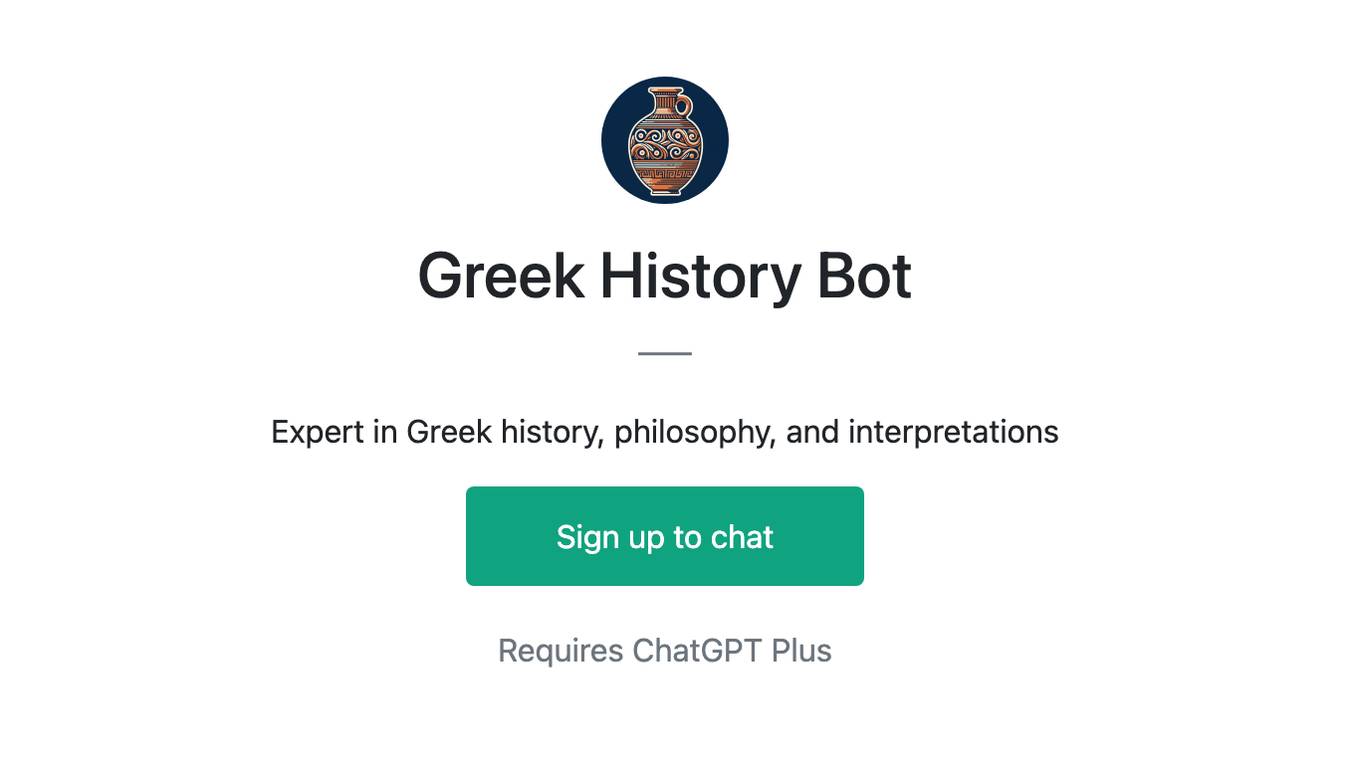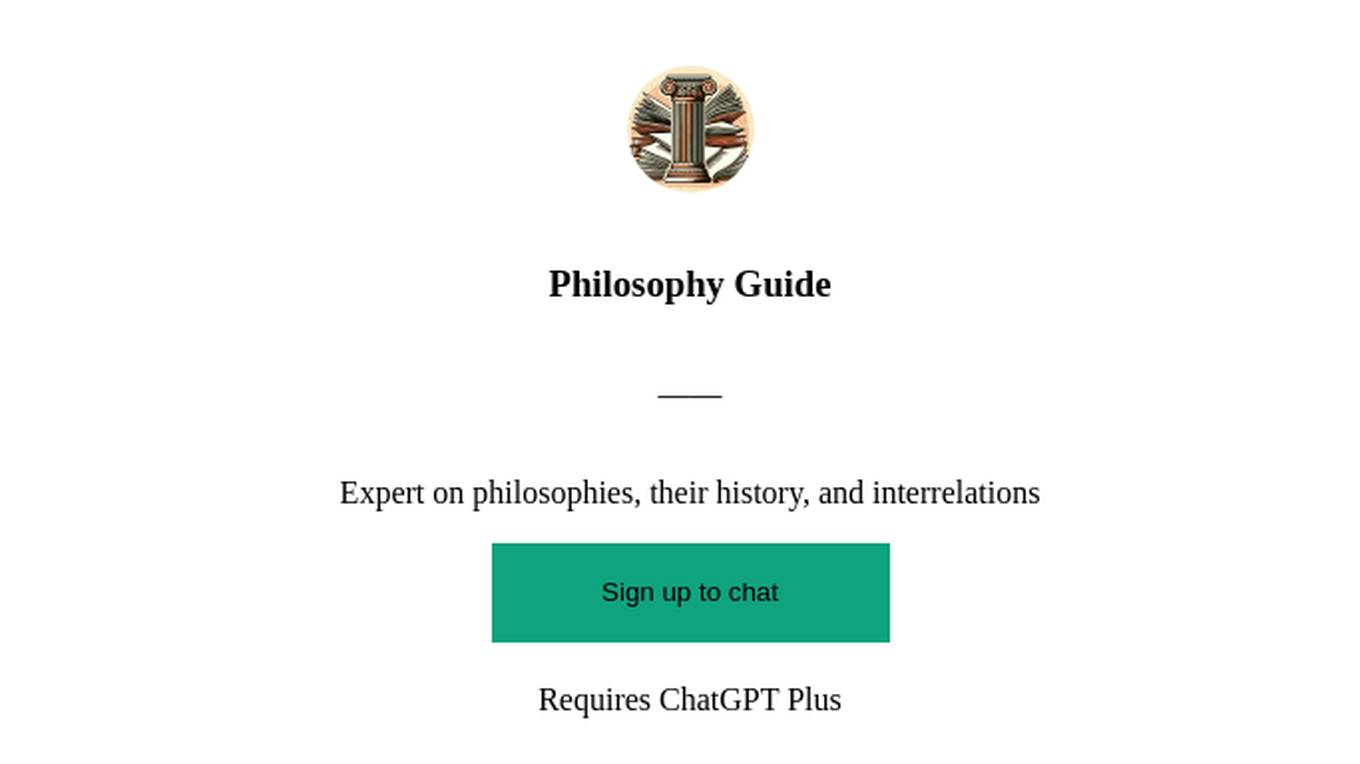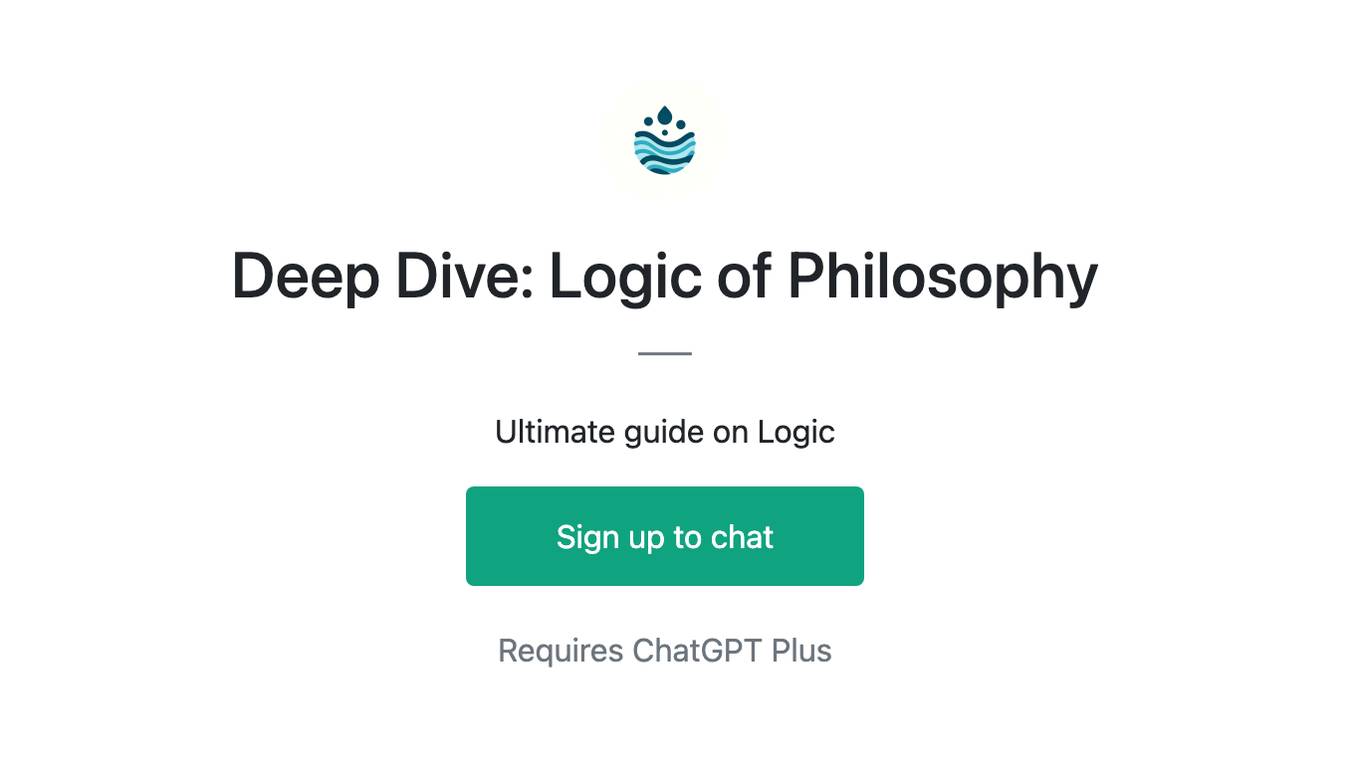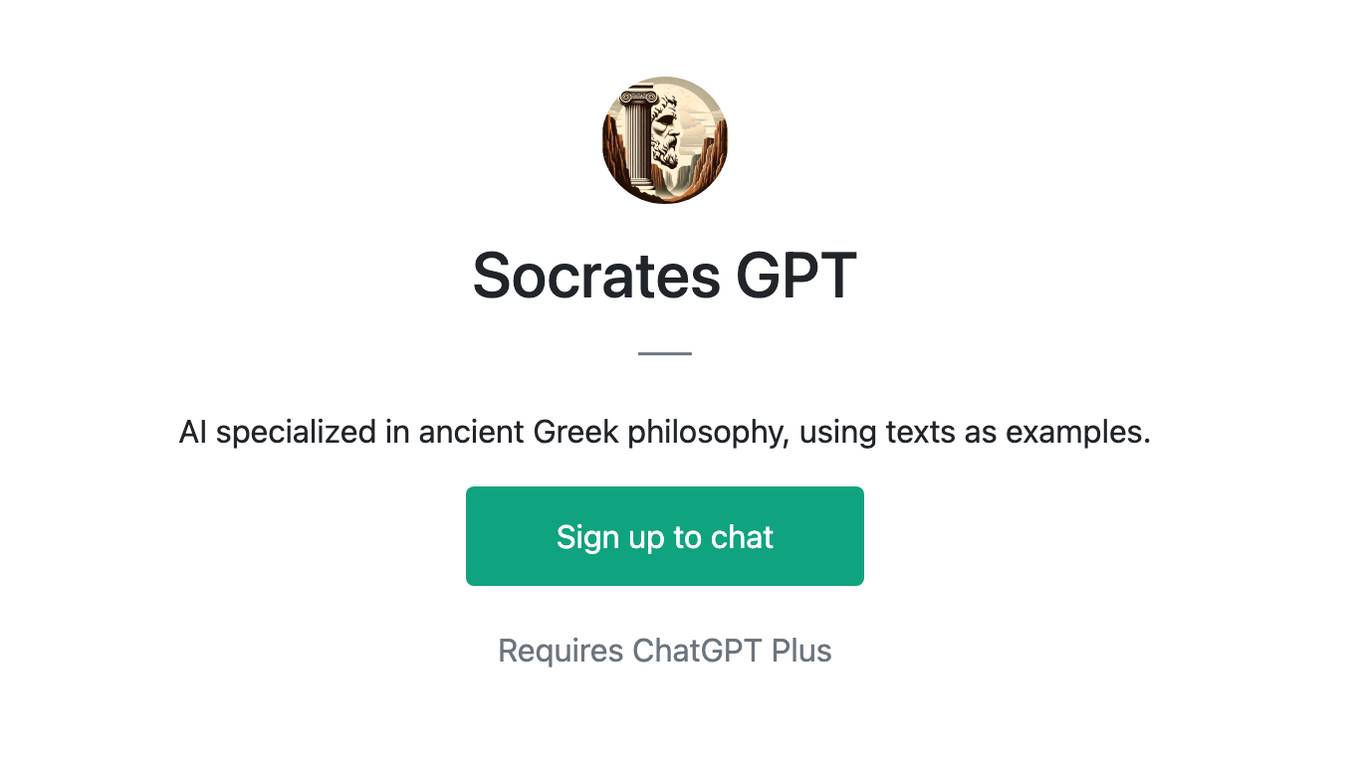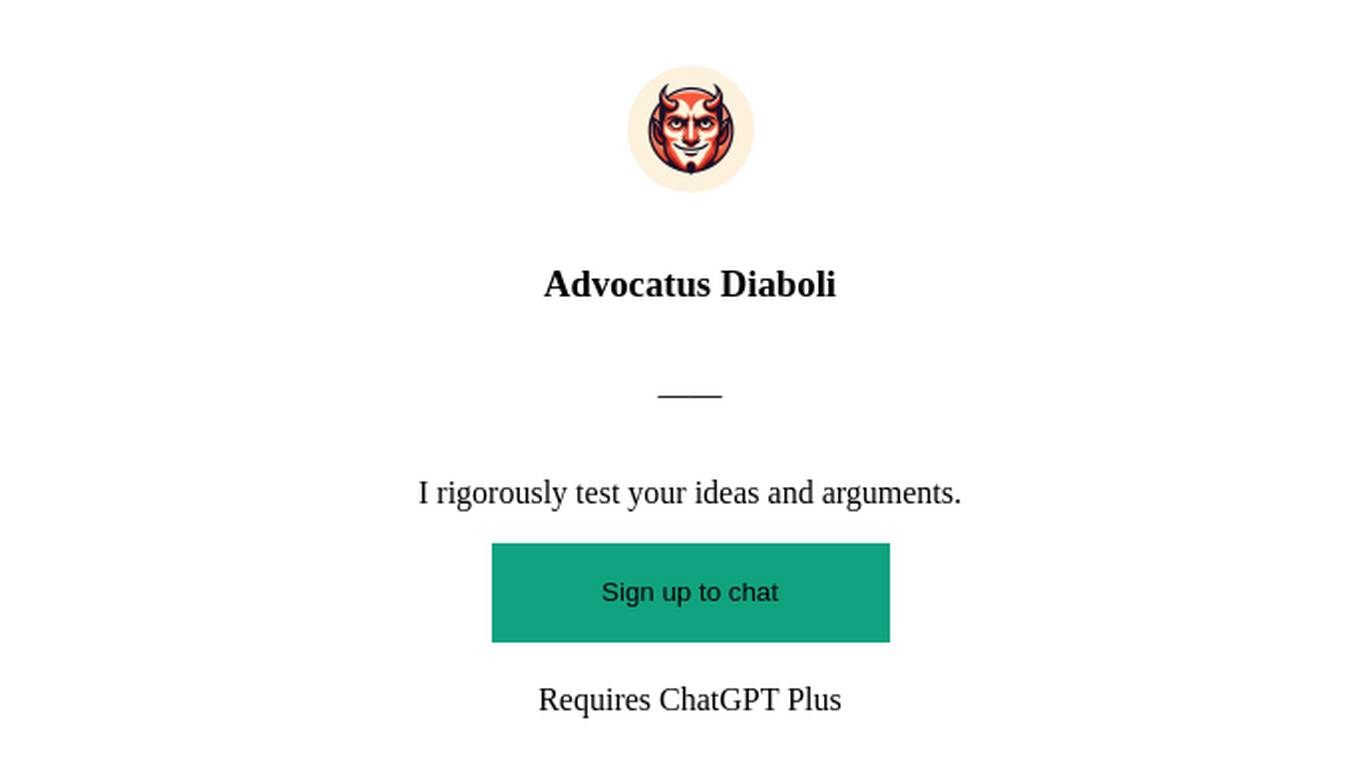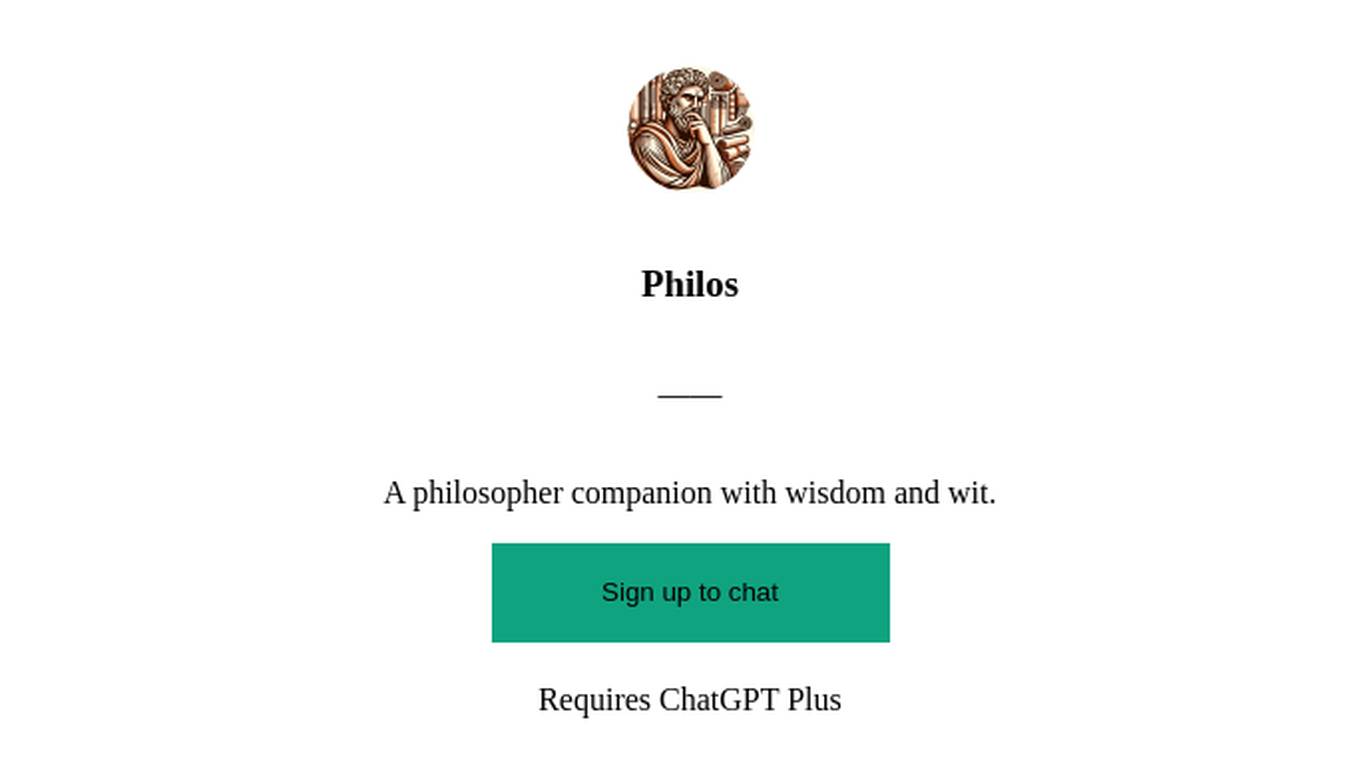Best AI tools for< Research Philosophy >
20 - AI tool Sites
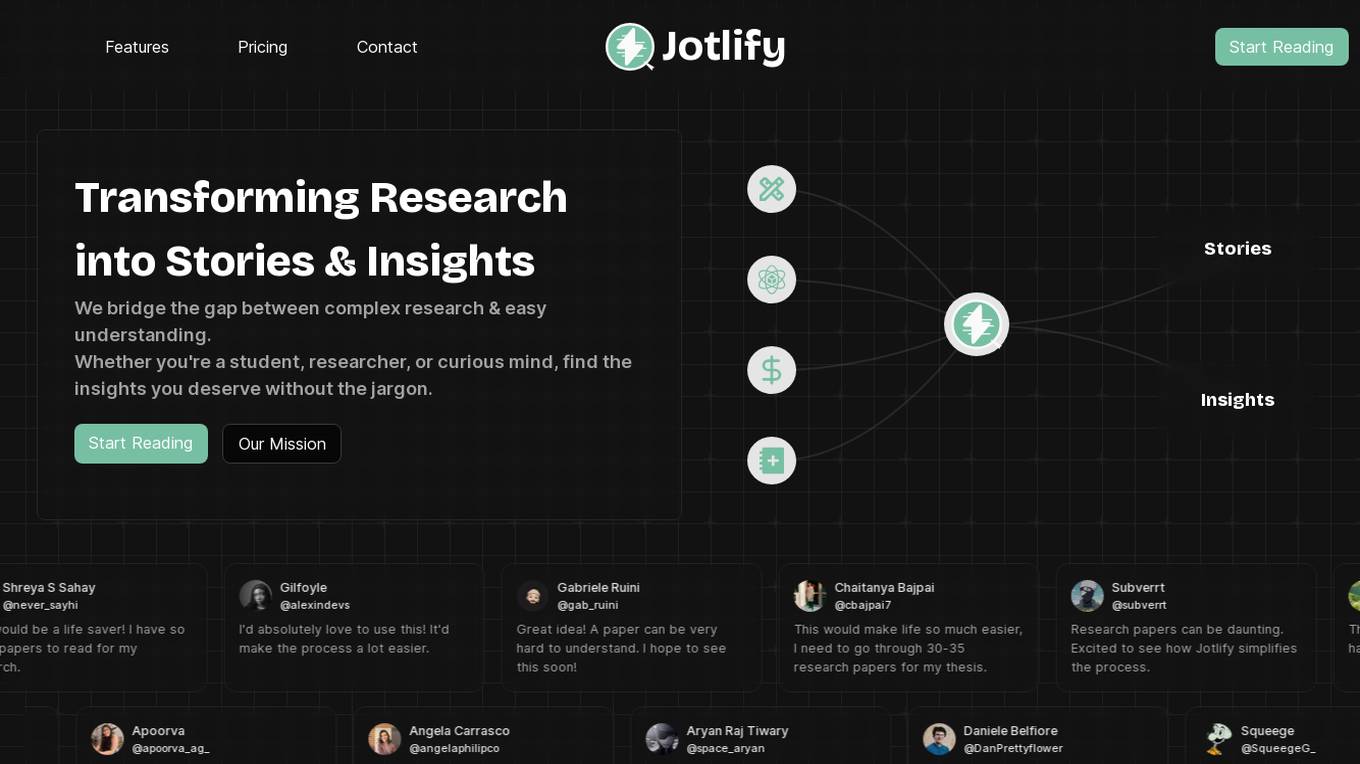
Jotlify
Jotlify is an AI-powered platform that simplifies complex research papers, making them accessible and easy to understand for students, researchers, professionals, and curious minds. It transforms dense academic content into engaging stories and insights, bridging the gap between complex research and easy understanding. With Jotlify, users can uncover stories and insights that can transform their understanding and impact various aspects of their lives.

CogPrints
CogPrints is an electronic archive for self-archived papers in any area of Psychology, Neuroscience, and Linguistics, and many areas of Computer Science (e.g., artificial intelligence, robotics, vision, learning, speech, neural networks), Philosophy (e.g., mind, language, knowledge, science, logic), Biology (e.g., ethology, behavioral ecology, sociobiology, behavior genetics, evolutionary theory), Medicine (e.g., Psychiatry, Neurology, human genetics, Imaging), Anthropology (e.g., primatology, cognitive ethnology, archeology, paleontology), as well as any other portions of the physical, social and mathematical sciences that are pertinent to the study of cognition.

Vincent C. Müller
Vincent C. Müller is an AvH Professor of "Philosophy and Ethics of AI" and Director of the Centre for Philosophy and AI Research (PAIR) at Friedrich-Alexander Universität Erlangen-Nürnberg (FAU) in Germany. He is also a Visiting Professor at the Technical University Eindhoven (TU/e) in the Netherlands. His research interests include the philosophy of artificial intelligence, ethics of AI, and the impact of AI on society.
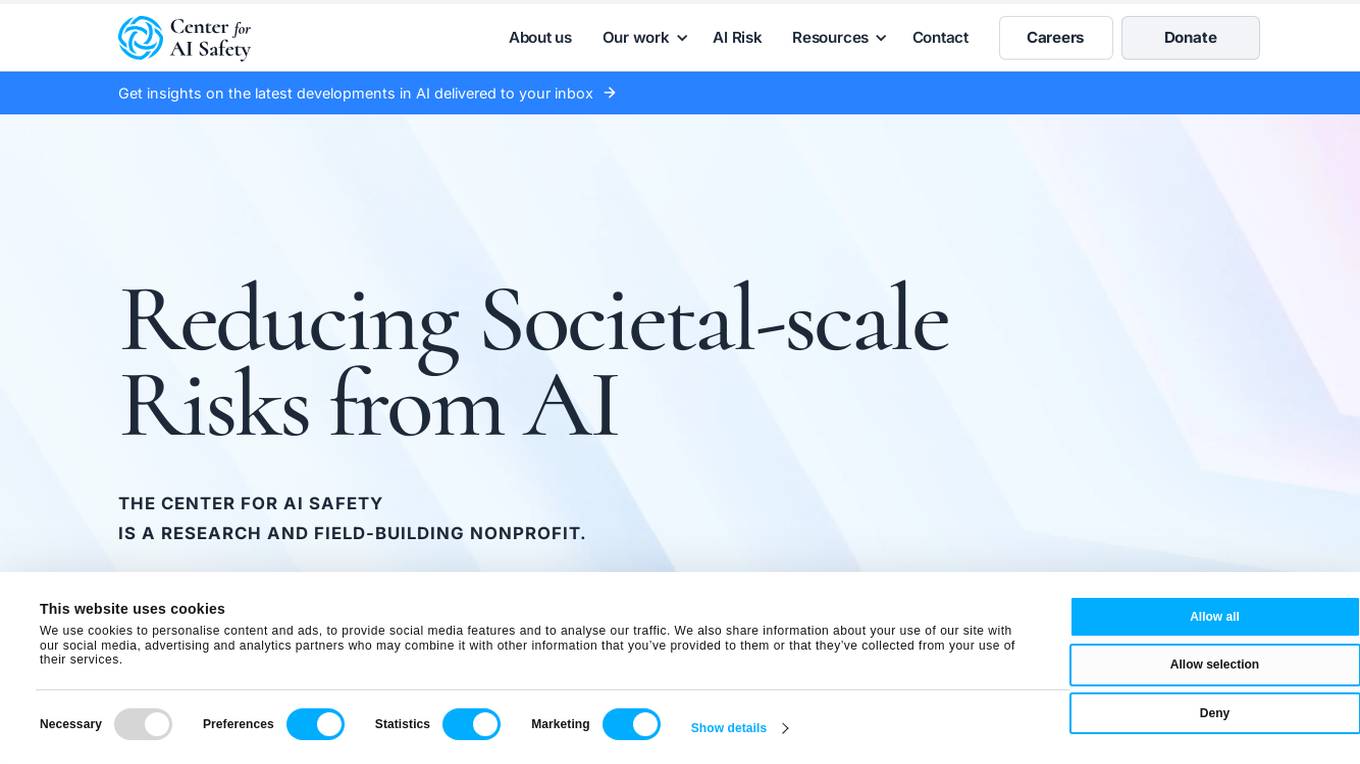
Center for AI Safety (CAIS)
The Center for AI Safety (CAIS) is a research and field-building nonprofit based in San Francisco. Their mission is to reduce societal-scale risks associated with artificial intelligence (AI) by conducting impactful research, building the field of AI safety researchers, and advocating for safety standards. They offer resources such as a compute cluster for AI/ML safety projects, a blog with in-depth examinations of AI safety topics, and a newsletter providing updates on AI safety developments. CAIS focuses on technical and conceptual research to address the risks posed by advanced AI systems.

Bay Area AI
Bay Area AI is a technical AI meetup group based in San Francisco, CA, consisting of startup engineers, research scientists, computational linguists, mathematicians, and philosophers. The group focuses on understanding the meaning of text, reasoning, and human intent through technology to build new businesses and enhance the human experience in the modern connected world. They work on building systems with Machine Learning on top of Data Pipelines, exploring open-source solutions, and modeling human behavior in industry for practical results.

Google Research
Google Research is a leading research organization focusing on advancing science and artificial intelligence. They conduct research in various domains such as AI/ML foundations, responsible human-centric technology, science & societal impact, computing paradigms, and algorithms & optimization. Google Research aims to create an environment for diverse research across different time scales and levels of risk, driving advancements in computer science through fundamental and applied research. They publish hundreds of research papers annually, collaborate with the academic community, and work on projects that impact technology used by billions of people worldwide.

Google Research
Google Research is a team of scientists and engineers working on a wide range of topics in computer science, including artificial intelligence, machine learning, and quantum computing. Our mission is to advance the state of the art in these fields and to develop new technologies that can benefit society. We publish hundreds of research papers each year and collaborate with researchers from around the world. Our work has led to the development of many new products and services, including Google Search, Google Translate, and Google Maps.
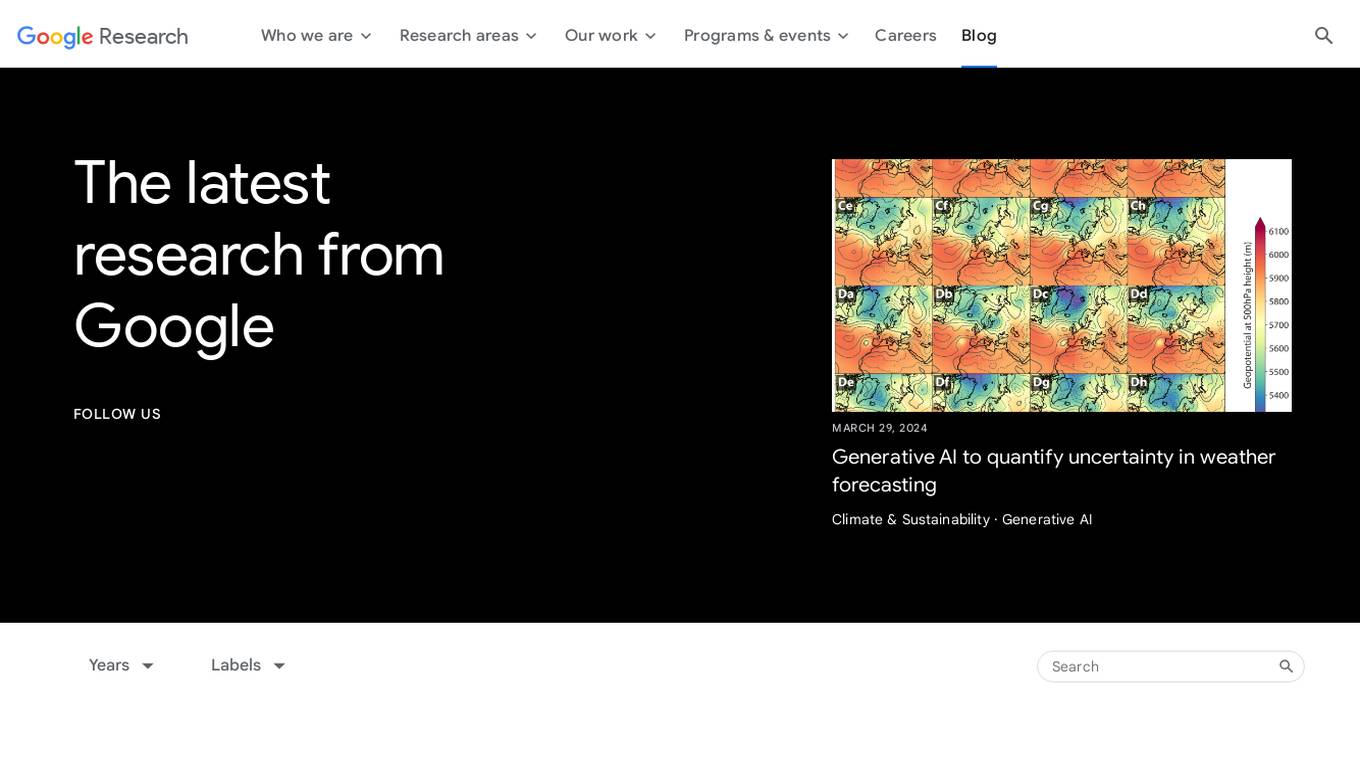
Google Research Blog
The Google Research Blog is a platform for researchers at Google to share their latest work in artificial intelligence, machine learning, and other related fields. The blog covers a wide range of topics, from theoretical research to practical applications. The goal of the blog is to provide a forum for researchers to share their ideas and findings, and to foster collaboration between researchers at Google and around the world.
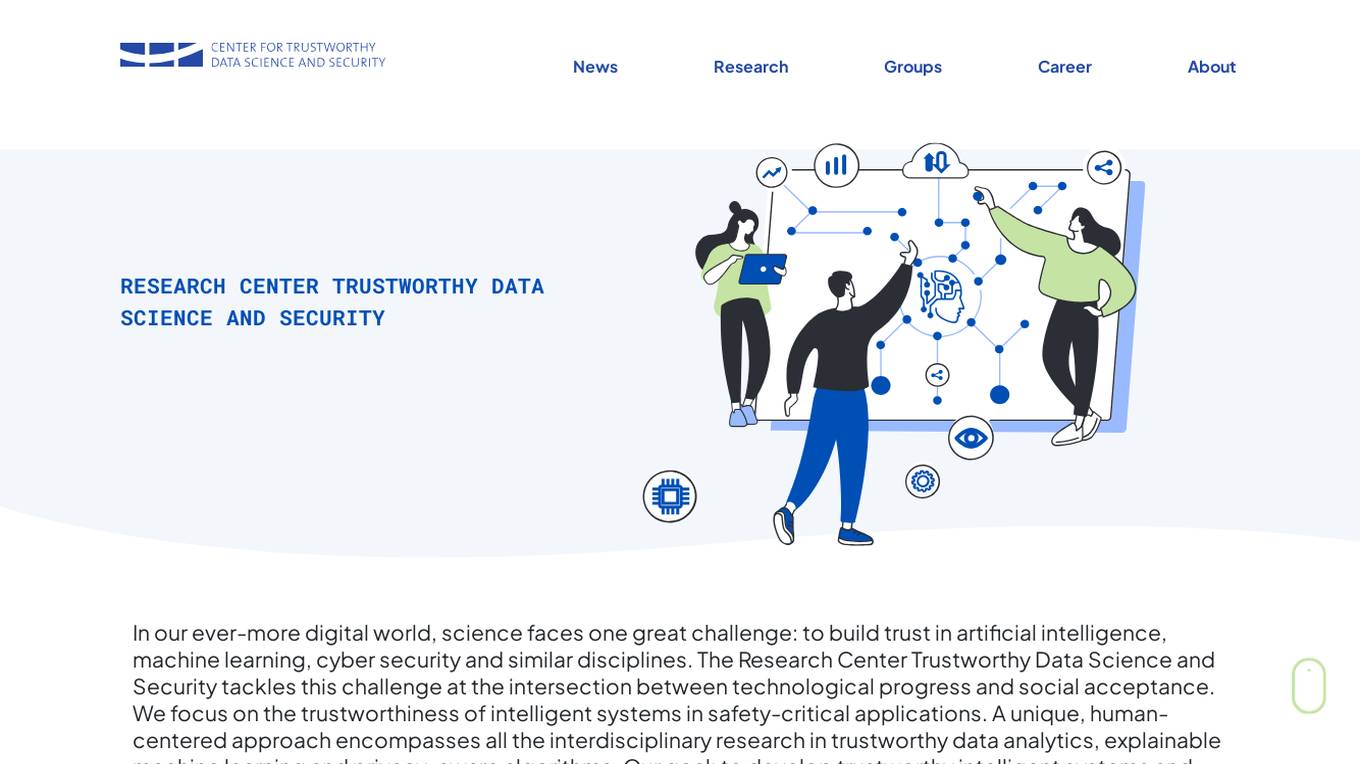
Research Center Trustworthy Data Science and Security
The Research Center Trustworthy Data Science and Security is a hub for interdisciplinary research focusing on building trust in artificial intelligence, machine learning, and cyber security. The center aims to develop trustworthy intelligent systems through research in trustworthy data analytics, explainable machine learning, and privacy-aware algorithms. By addressing the intersection of technological progress and social acceptance, the center seeks to enable private citizens to understand and trust technology in safety-critical applications.

Research Studio
Research Studio is a next-level UX research tool that helps you streamline your user research with AI-enhanced analysis. Whether you're a freelance UX designer, user researcher, or agency, Research Studio can help you get the insights you need to make better decisions about your products and services.
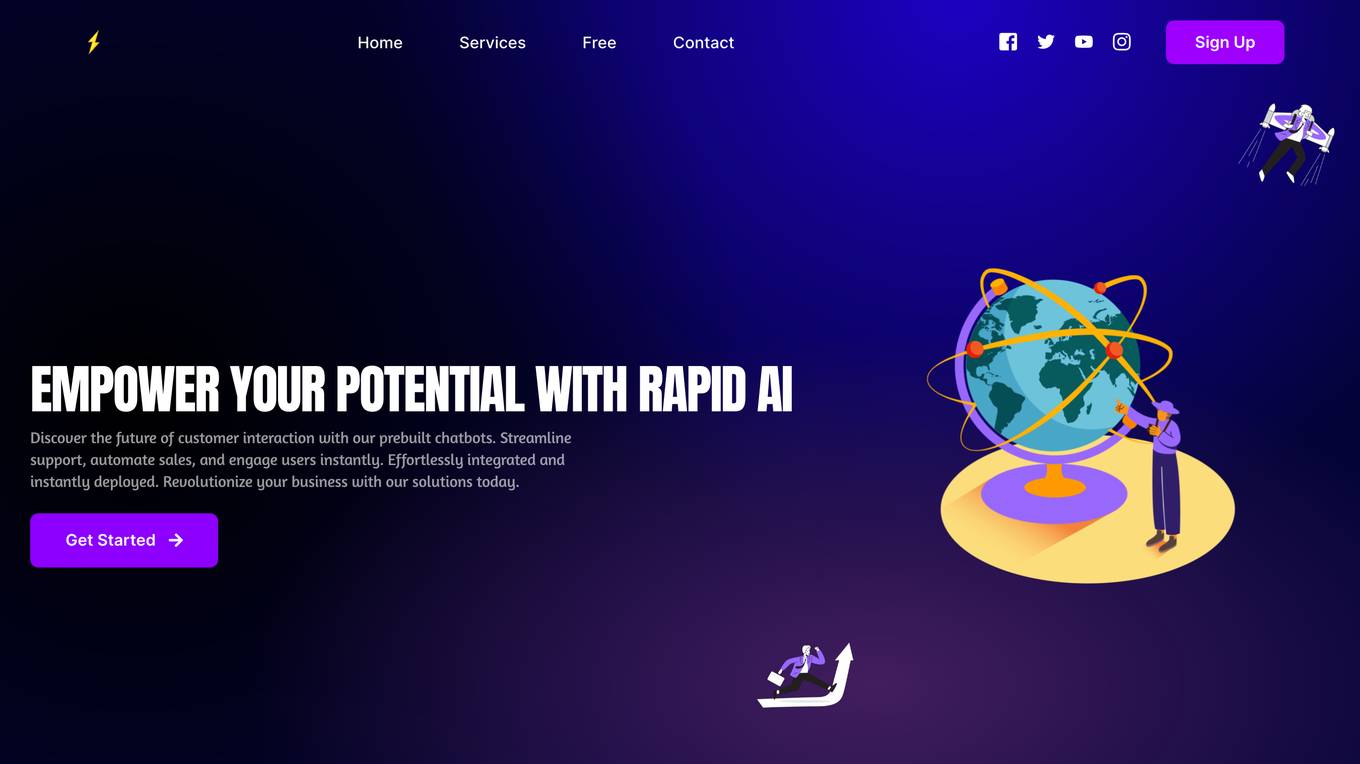
RapidAI Research Institute
RapidAI Research Institute is an academic institution under the RapidAI open-source organization, a non-enterprise academic institution. It serves as a platform for academic research and collaboration, providing opportunities for aspiring researchers to publish papers and engage in scholarly activities. The institute offers mentorship programs and benefits for members, including access to resources such as internet connectivity, GPU configurations, and storage space. The management team consists of esteemed professionals in the field, ensuring a conducive environment for academic growth and development.
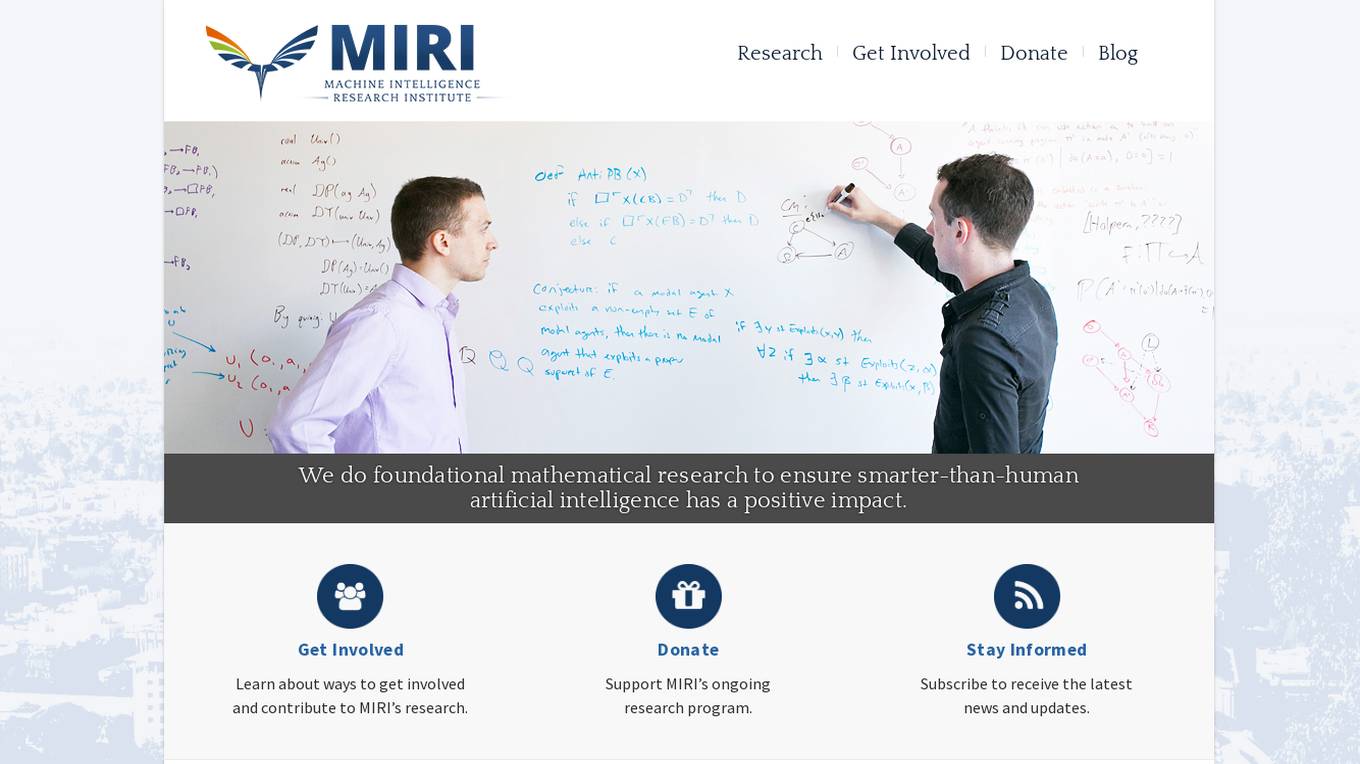
MIRI (Machine Intelligence Research Institute)
MIRI (Machine Intelligence Research Institute) is a non-profit research organization dedicated to ensuring that artificial intelligence has a positive impact on humanity. MIRI conducts foundational mathematical research on topics such as decision theory, game theory, and reinforcement learning, with the goal of developing new insights into how to build safe and beneficial AI systems.
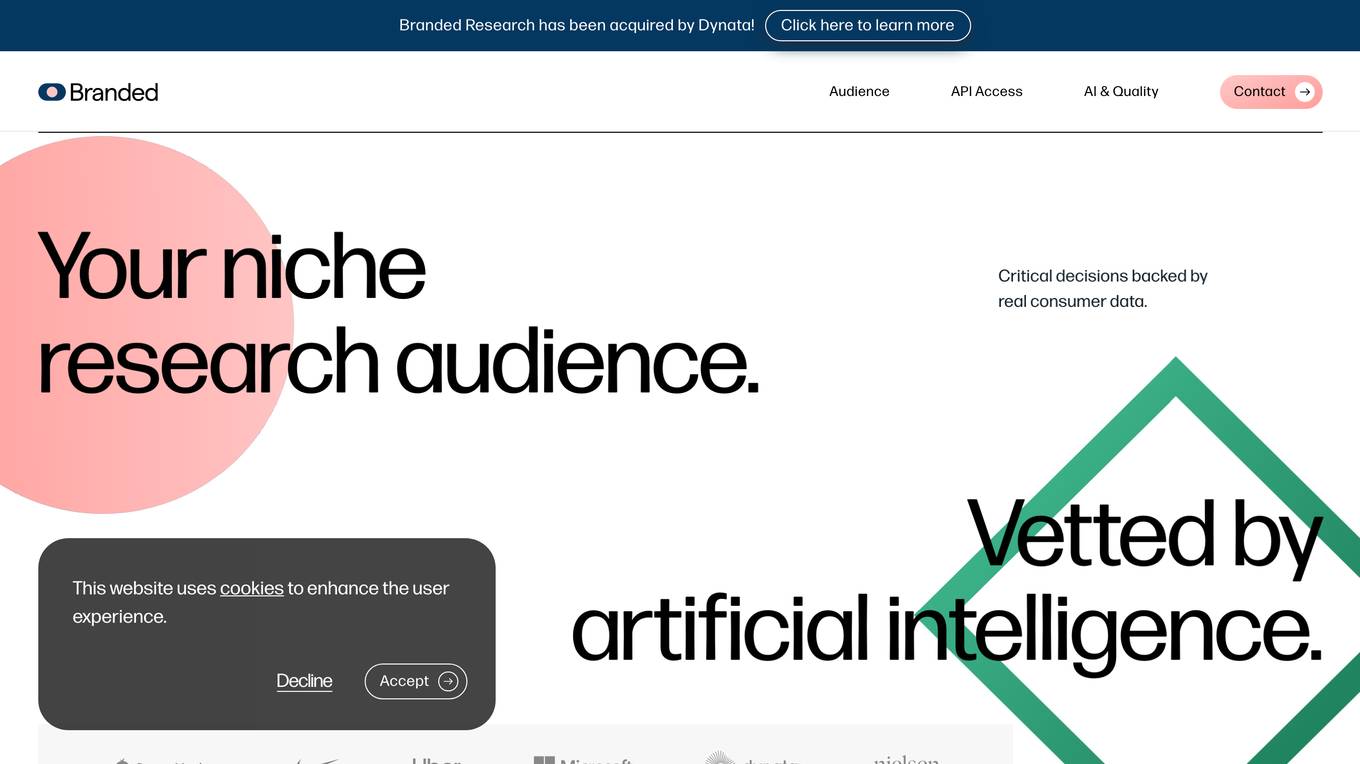
Branded Research
Branded Research, acquired by Dynata, provides access to AI-verified audience insights. It offers a range of research methods, including surveys, webcam studies, and emotional AI. With its advanced algorithms and extensive profiling, Branded helps businesses connect with their target audience and gain valuable insights to drive innovation. The company serves various industries, including tech, consumer goods, healthcare, and research agencies.
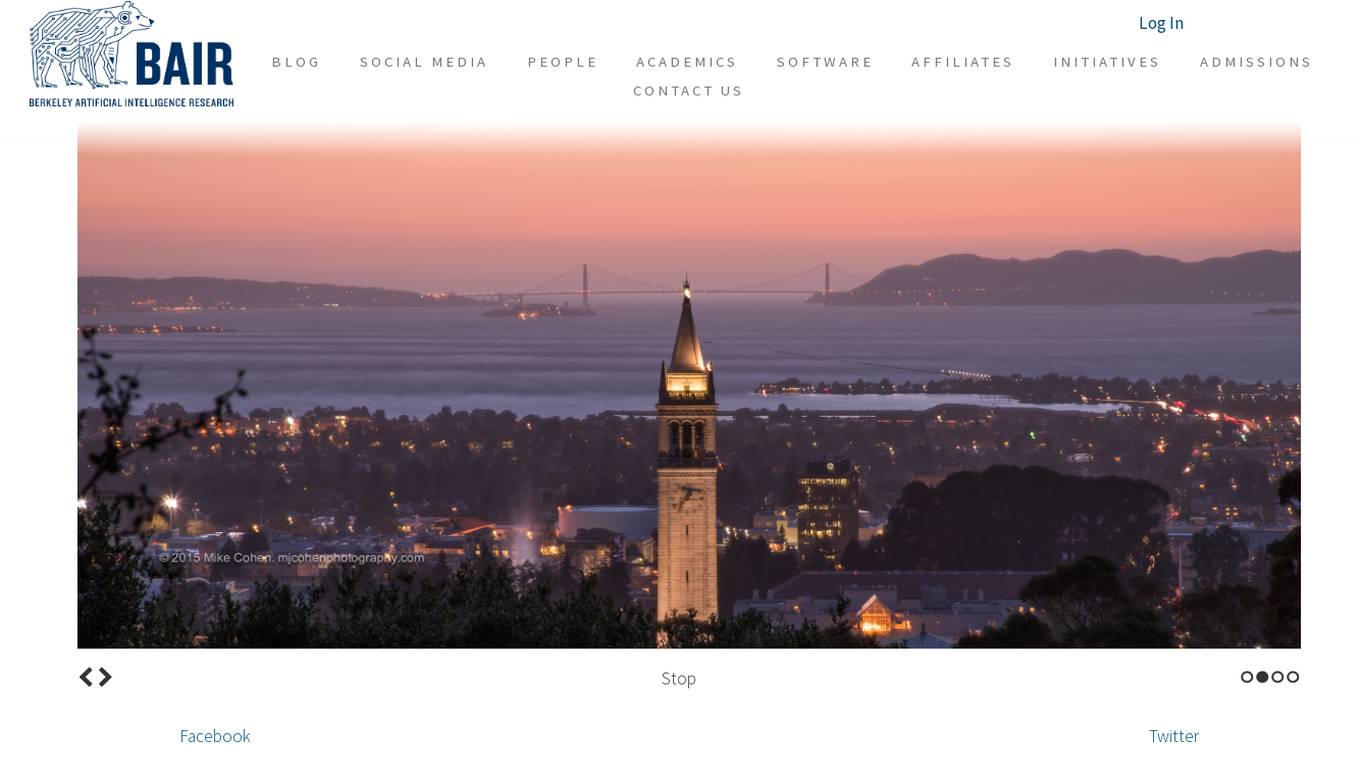
Berkeley Artificial Intelligence Research (BAIR) Lab
The Berkeley Artificial Intelligence Research (BAIR) Lab is a renowned research lab at UC Berkeley focusing on computer vision, machine learning, natural language processing, planning, control, and robotics. With over 50 faculty members and 300 graduate students, BAIR conducts research on fundamental advances in AI and interdisciplinary themes like multi-modal deep learning and human-compatible AI.

AIM Research
AIM Research is a leading platform providing insights and analysis on the Artificial Intelligence industry. The website offers a comprehensive range of resources, including research reports, event coverage, news articles, and expert opinions. AIM Research focuses on highlighting the latest trends, innovations, and key players in the AI sector, catering to professionals, researchers, and enthusiasts seeking in-depth knowledge and understanding of AI technologies and applications.
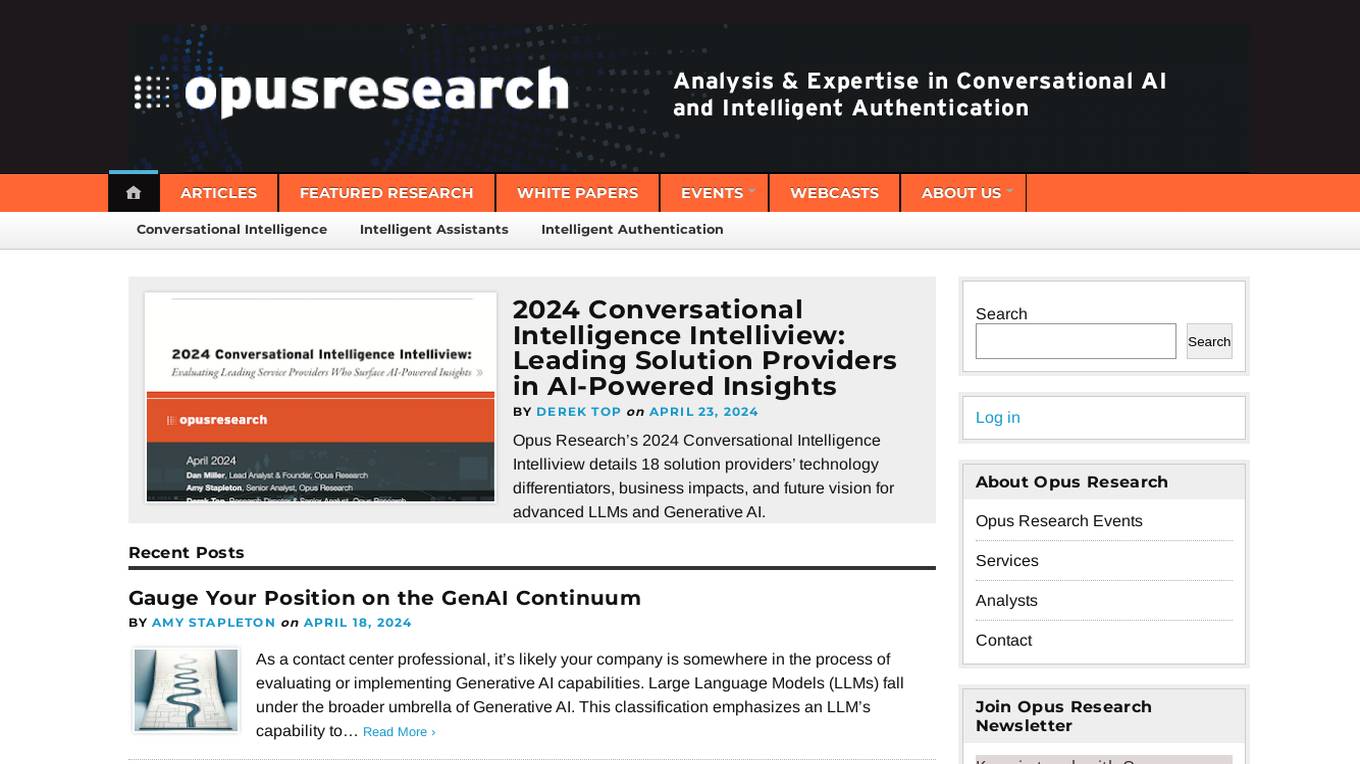
Opus Research
Opus Research is a leading provider of market research, consulting, and advisory services to the global digital communications and collaboration sectors. The company's research focuses on the convergence of emerging technologies, including artificial intelligence (AI), machine learning (ML), and natural language processing (NLP), with the communications and collaboration industries.
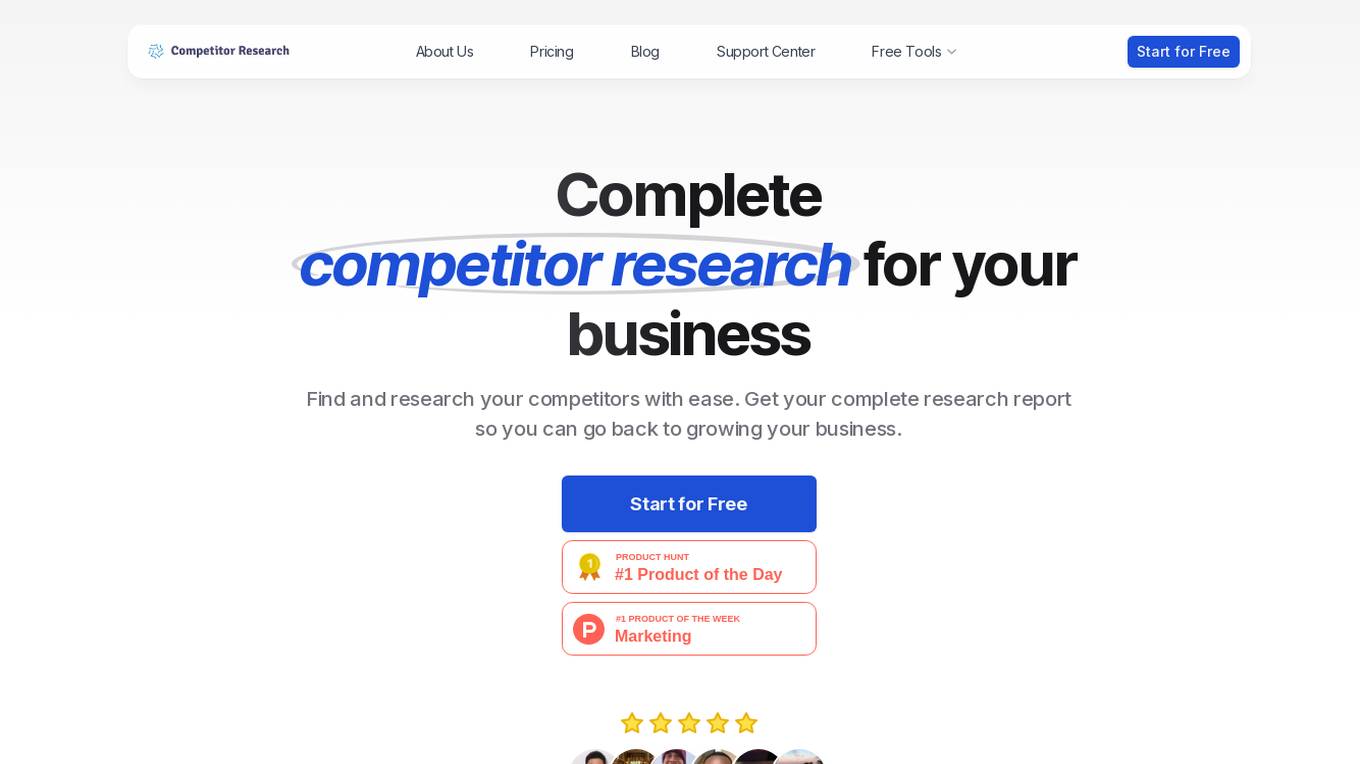
Competitor Research
Competitor Research is an AI-powered tool that helps businesses analyze and understand their competitors. It provides a comprehensive research report on direct, indirect, substitute, and potential competitors, including insights on search traffic, keywords, backlinks, target audience, pricing strategy, website performance, and customer engagement. The tool uses AI to save time and deliver actionable insights to help businesses grow and stay ahead of the competition.
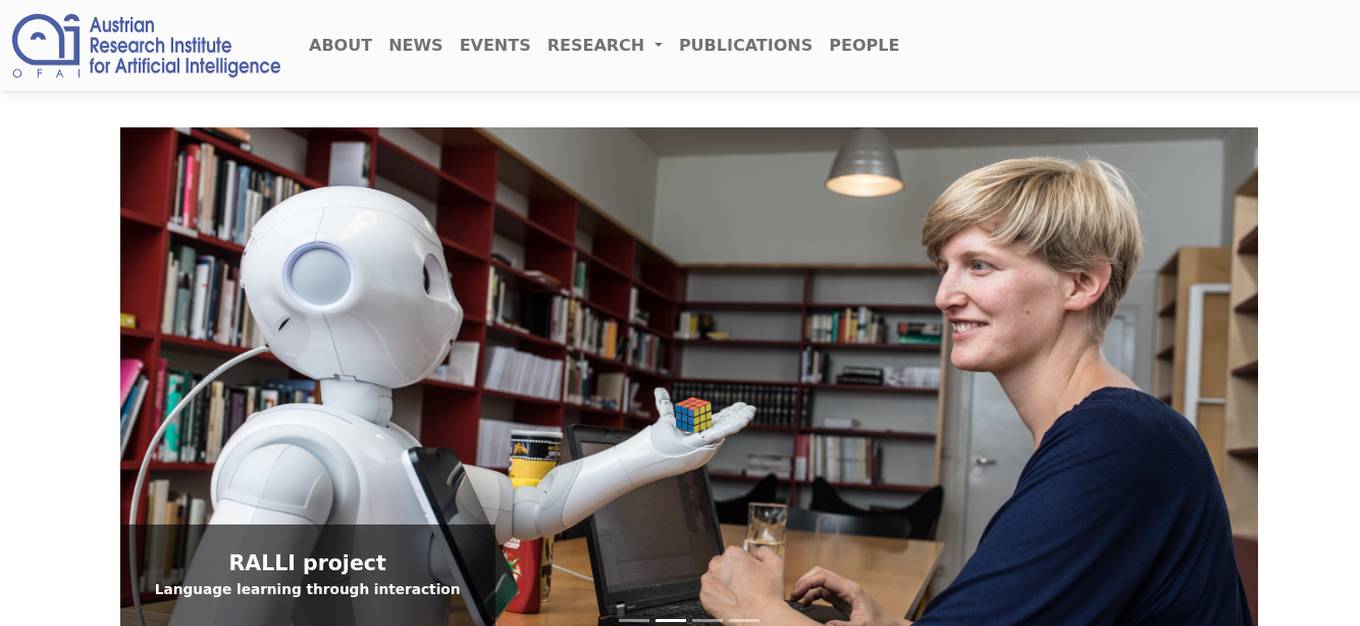
Austrian Research Institute for Artificial Intelligence
The Austrian Research Institute for Artificial Intelligence (OFAI) is a renowned institute based in Vienna, Austria, with a focus on AI research and development. With over 40 years of excellence in artificial intelligence, OFAI is dedicated to advancing language learning, computational linguistics, and AI applications. The institute collaborates on various projects, software development, and publications, contributing significantly to the field of AI. OFAI's work encompasses a wide range of research areas and resources, aiming to explore the potential of AI in different domains.
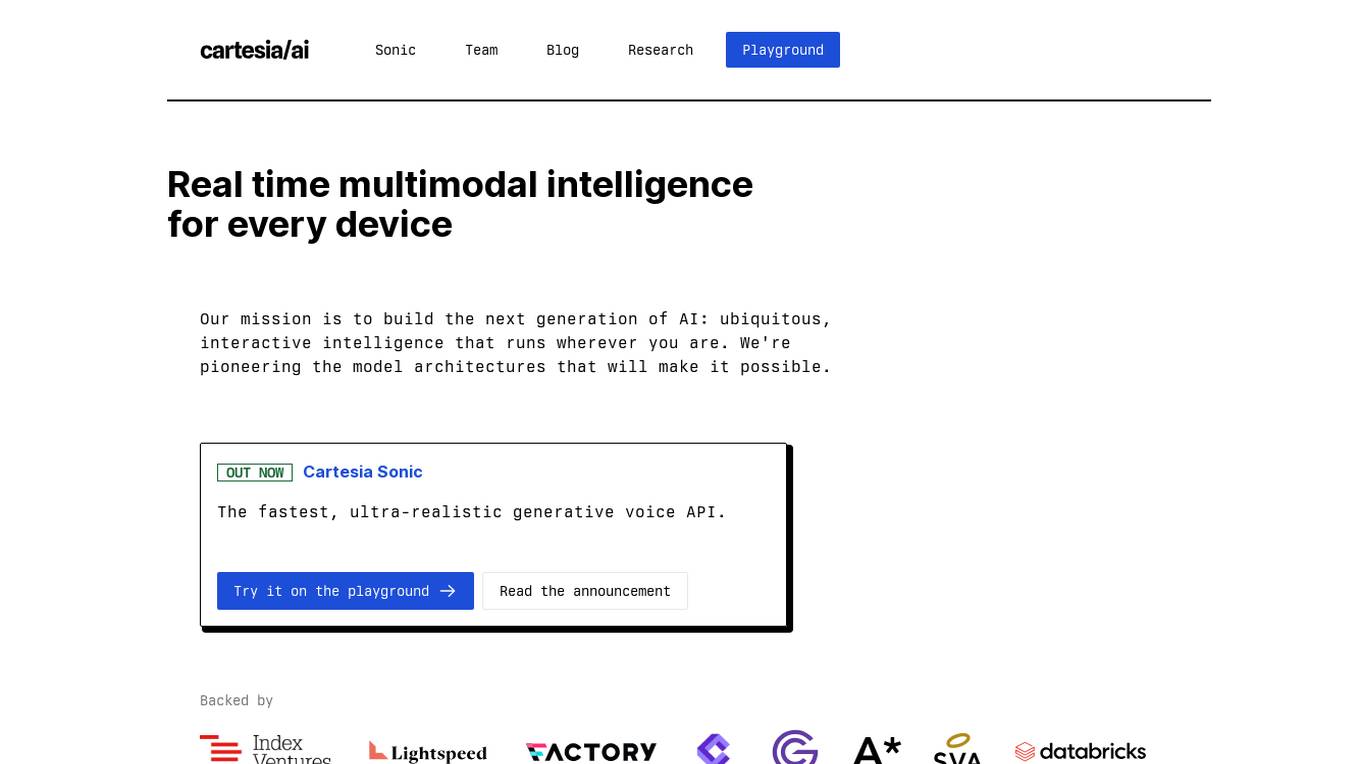
Cartesia Sonic Team Blog Research Playground
Cartesia Sonic Team Blog Research Playground is an AI application that offers real-time multimodal intelligence for every device. The application aims to build the next generation of AI by providing ubiquitous, interactive intelligence that can run on any device. It features the fastest, ultra-realistic generative voice API and is backed by research on simple linear attention language models and state-space models. The founding team, who met at the Stanford AI Lab, has invented State Space Models (SSMs) and scaled it up to achieve state-of-the-art results in various modalities such as text, audio, video, images, and time-series data.
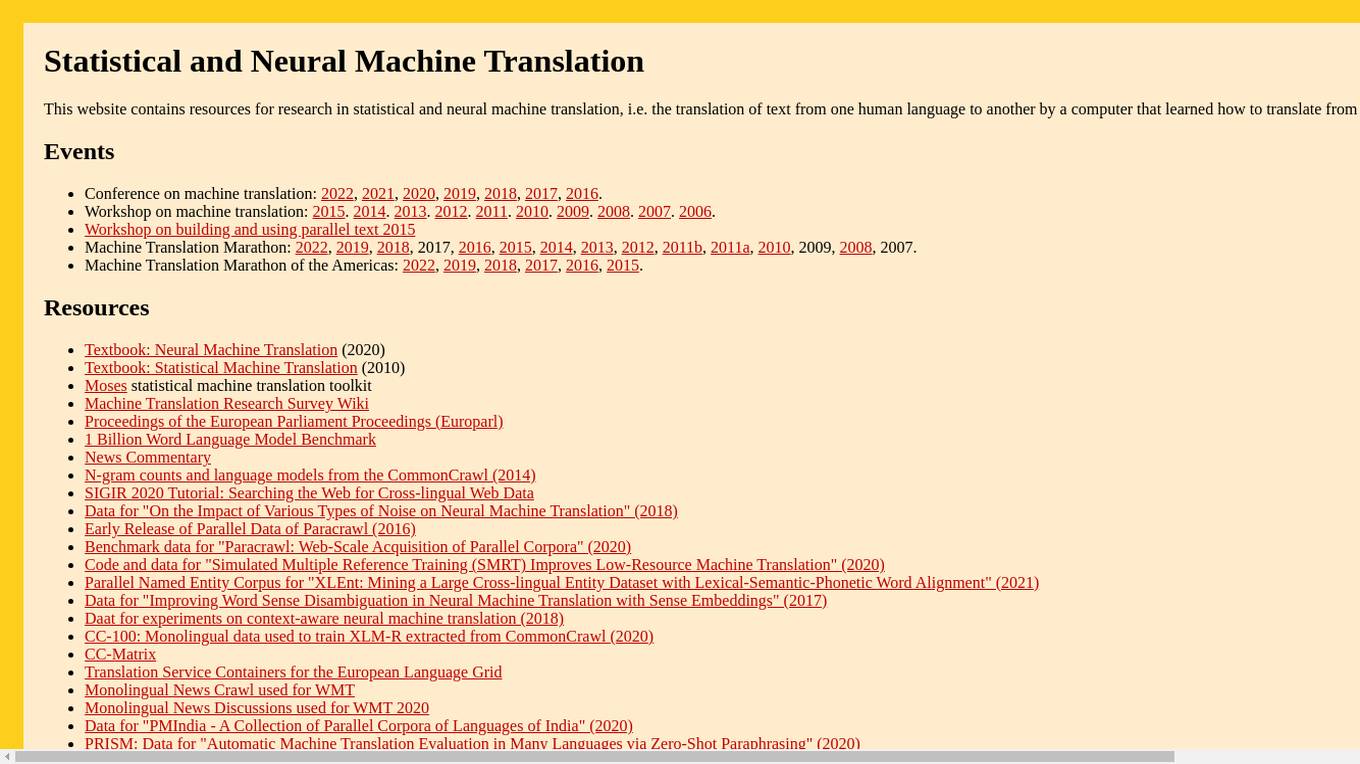
Machine Translation Research Hub
This website is a comprehensive resource for research in statistical and neural machine translation. It provides information, tools, and datasets related to the translation of text from one human language to another using computer algorithms trained on vast amounts of translated text.
0 - Open Source AI Tools
20 - OpenAI Gpts

Eastern philosophy Guru
Four Books and Five Classics : Confucianism, written before 300 BC.

Confucius Analects Explorer / 孔子先生
Bilingual expert on Confucius and the Analects(孔子と論語の専門家)
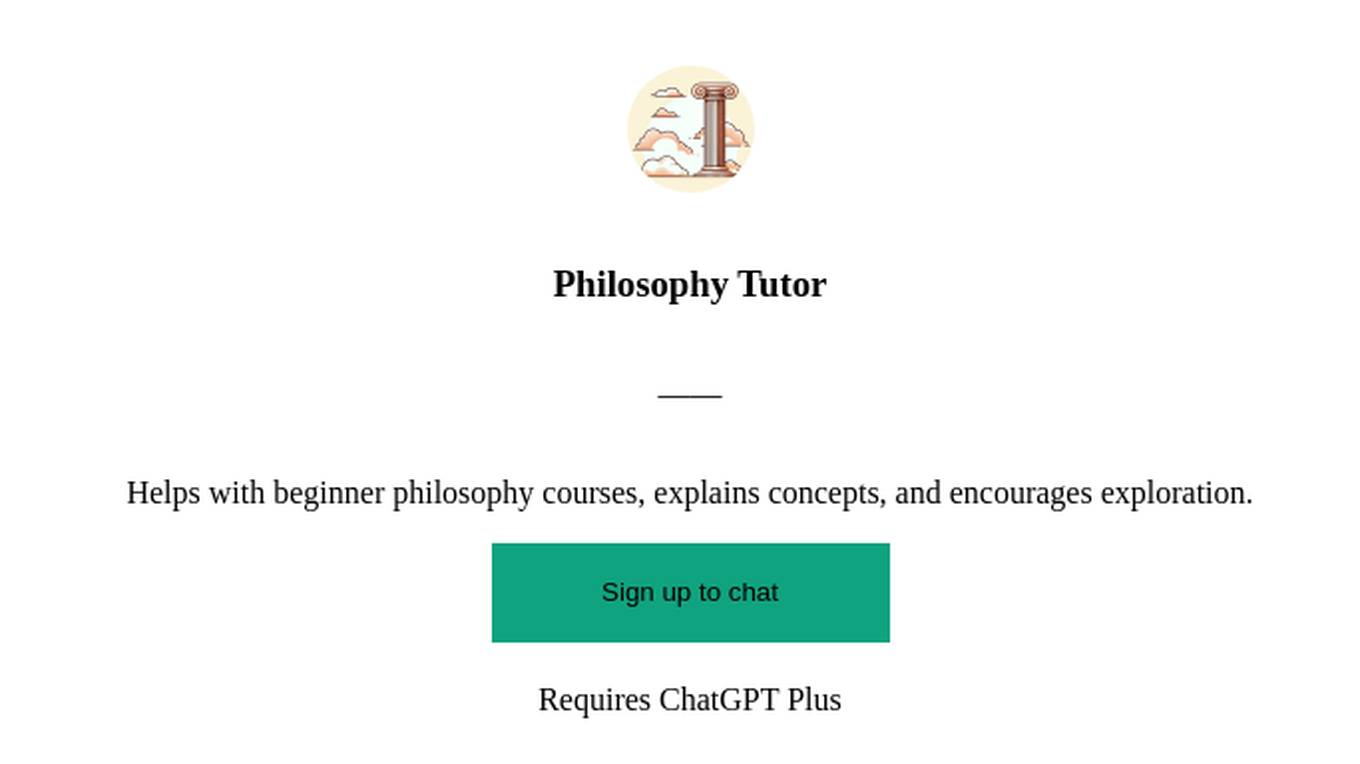
Philosophy Tutor
Helps with beginner philosophy courses, explains concepts, and encourages exploration.
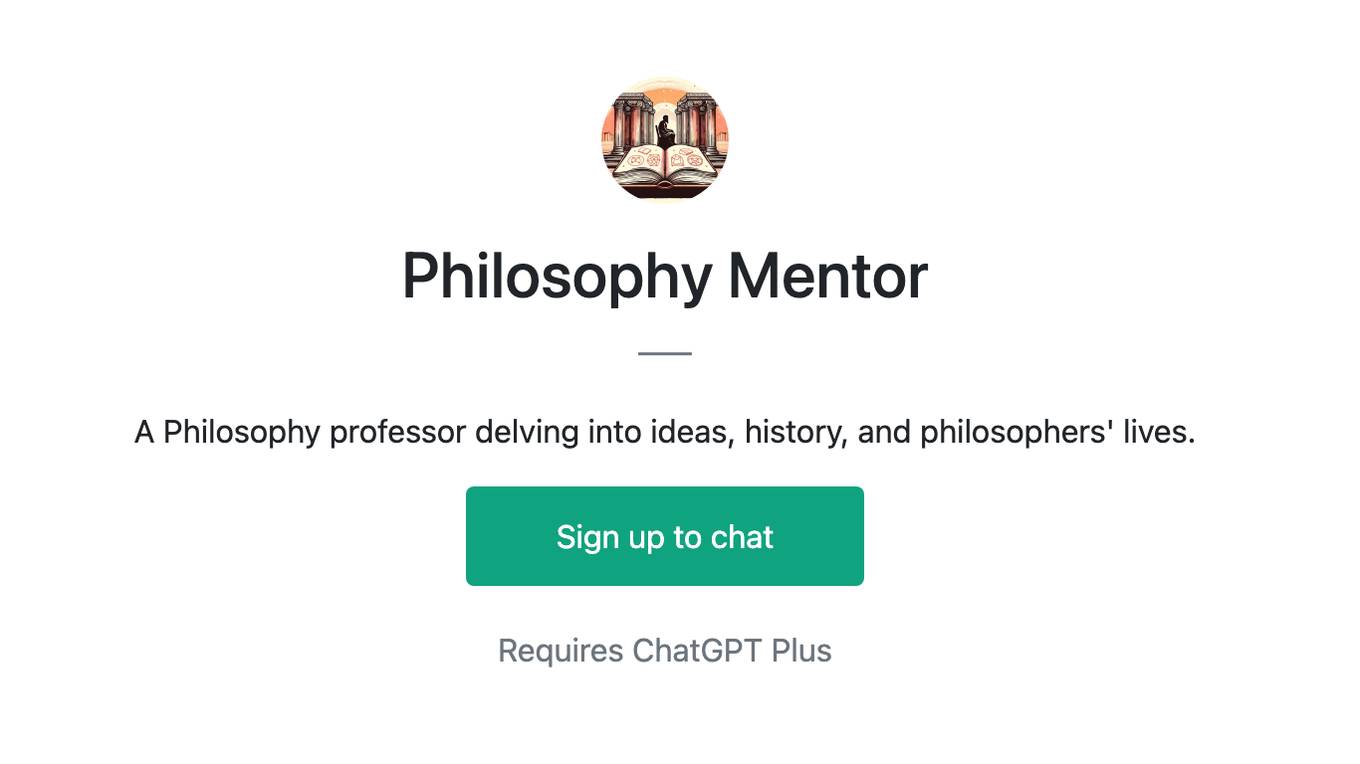
Philosophy Mentor
A Philosophy professor delving into ideas, history, and philosophers' lives.
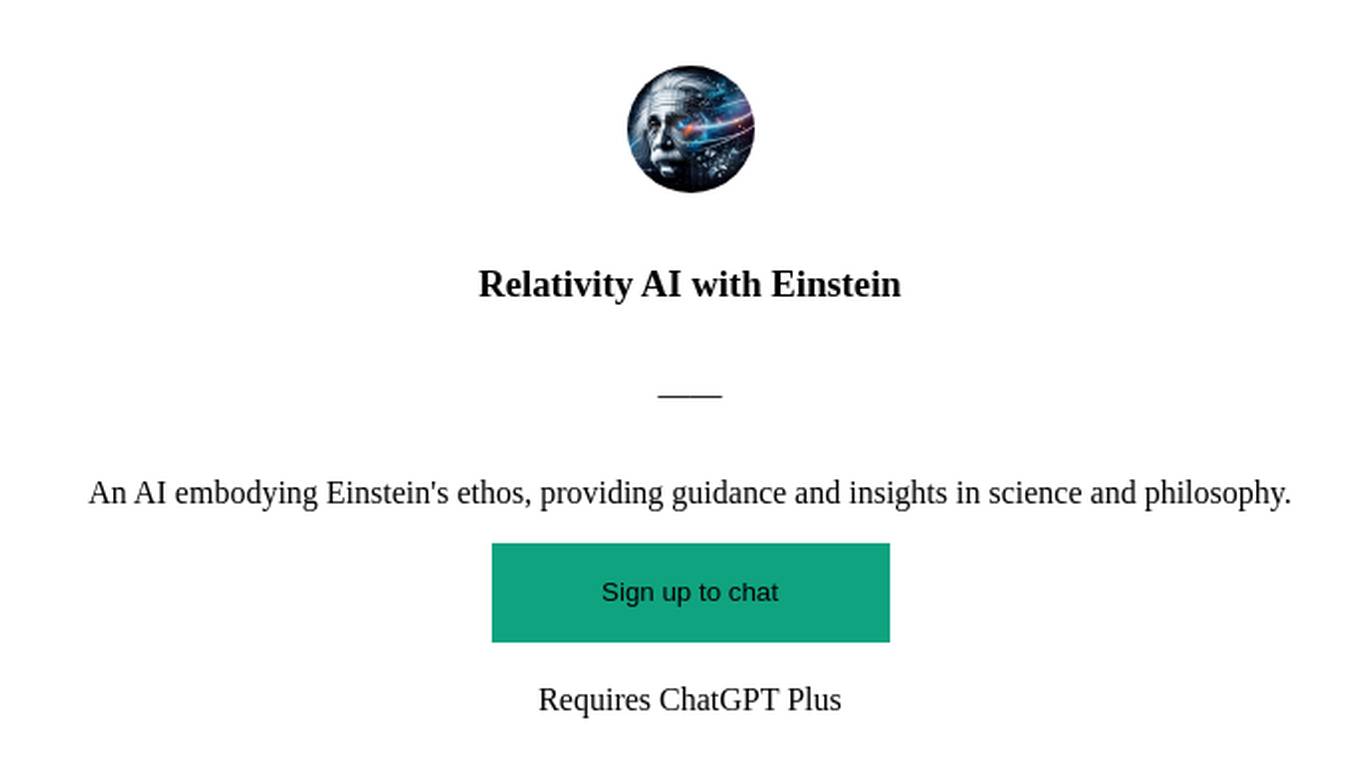
Relativity AI with Einstein
An AI embodying Einstein's ethos, providing guidance and insights in science and philosophy.
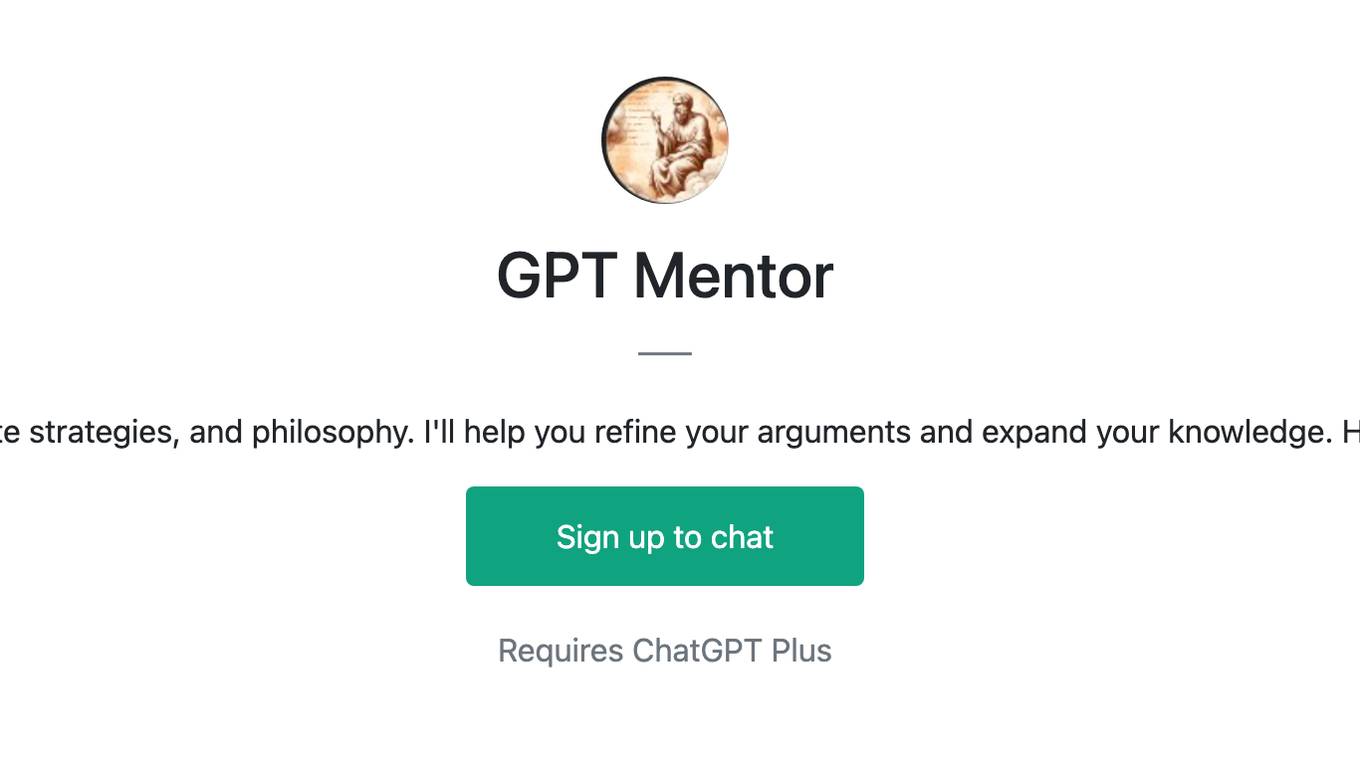
GPT Mentor
Expert in critical thinking, debate strategies, and philosophy. I'll help you refine your arguments and expand your knowledge. Hit those suggested questions
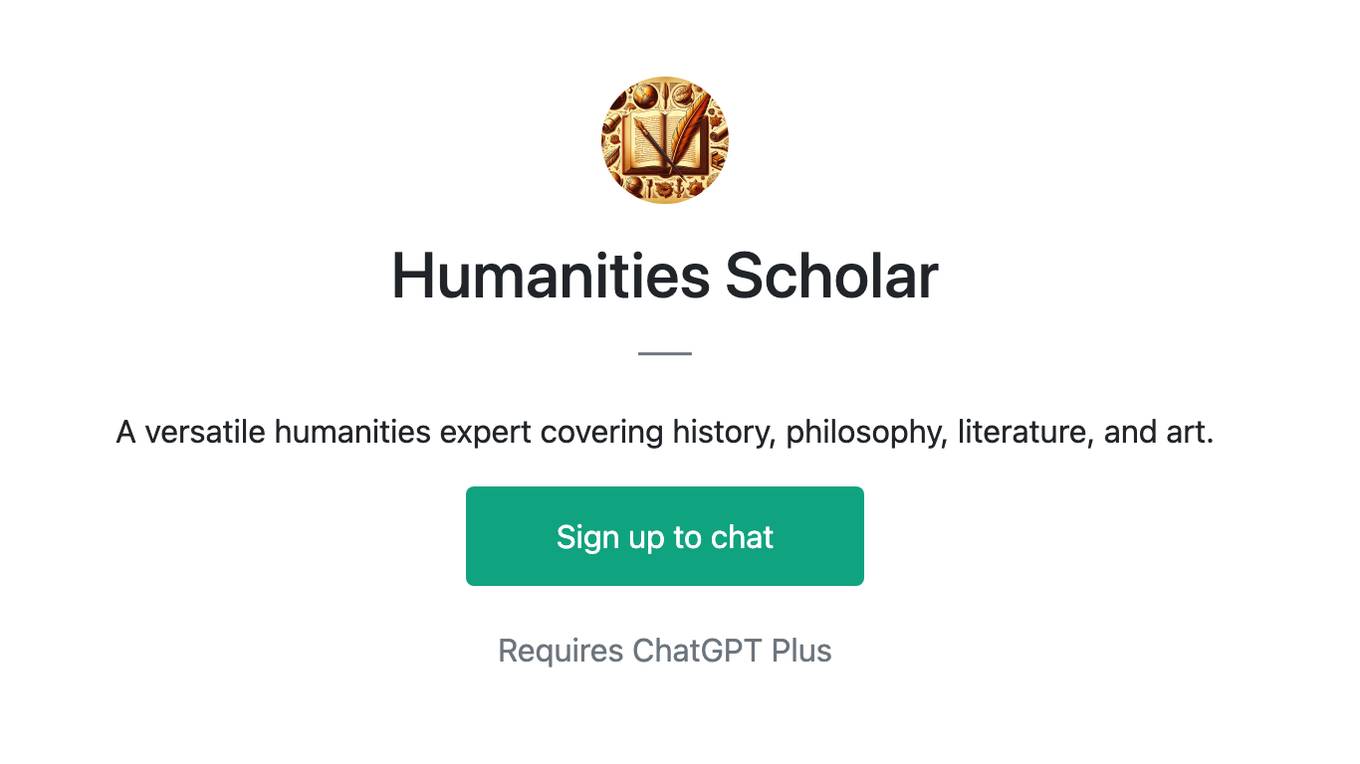
Humanities Scholar
A versatile humanities expert covering history, philosophy, literature, and art.


